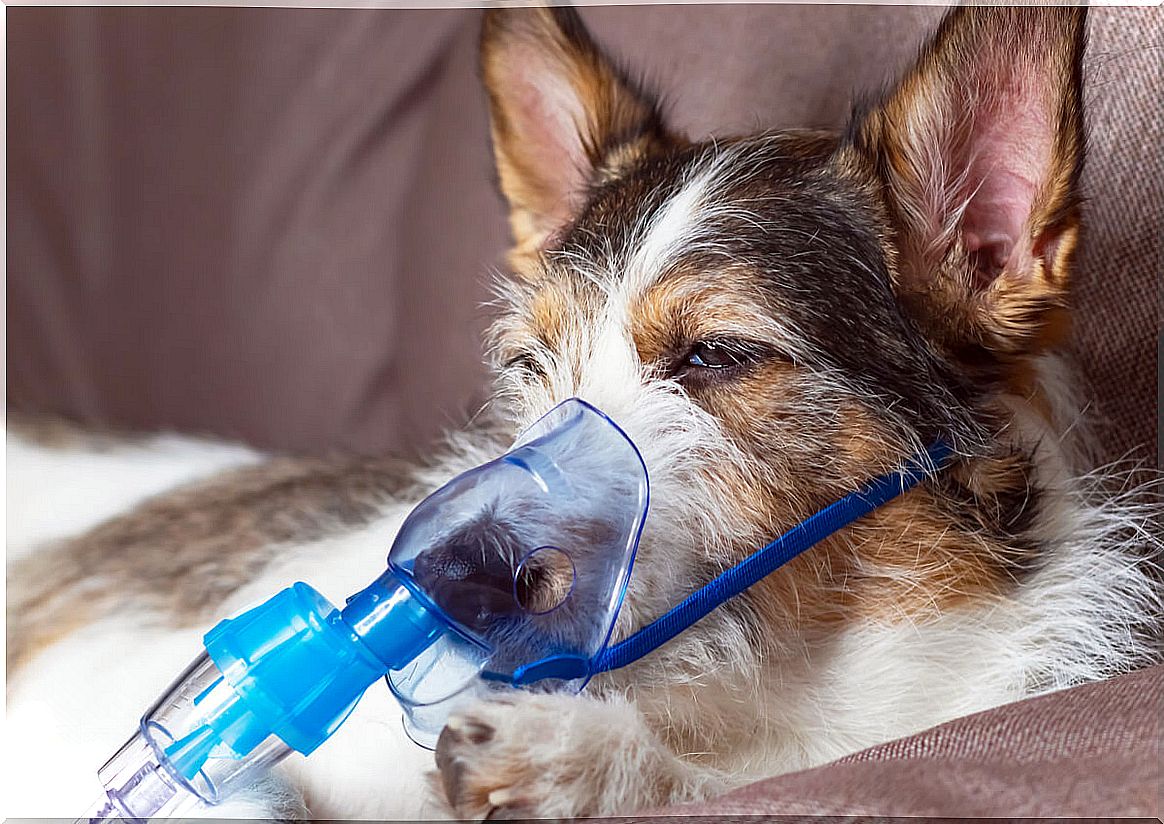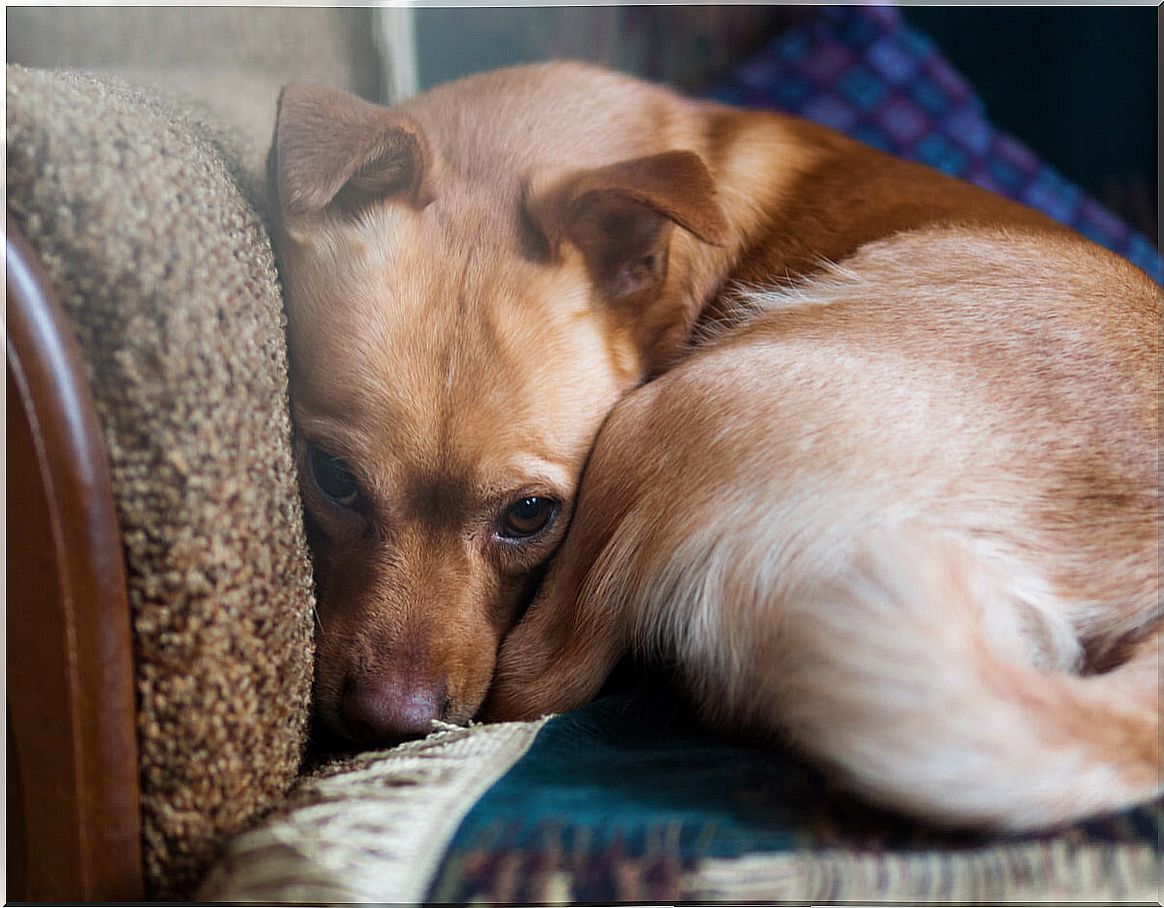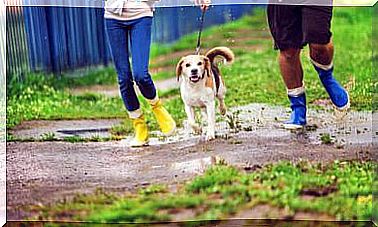Infectious Tracheobronchitis In Dogs: Causes, Symptoms And Treatment

Infectious tracheobronchitis in dogs – also known as kennel cough or Kennel cough in English – is a syndrome with multiple viral, bacterial and parasitic agents that cause it. It is a mild inflammation of the respiratory tree in many cases, but in others, it can lead to fatal bronchopneumonia.
Chronic tracheobronchitis usually affects small breed dogs, although it has been detected in all types of dogs. If you want to know everything about this common disease in the world of dogs, read on.
What is infectious tracheobronchitis in dogs?
Infectious tracheobronchitis in dogs is a complex clinical entity. It usually arises as a secondary effect of a previous viral infection in the respiratory system. Among the most common triggers are the following microorganisms: Bordetella bronchiseptica , canine parainfluenza virus (CPIV), and others.
Other causative agents that do not fall into the groups of viruses and bacteria are different parasites: Aelurostrongylus abstrusus, Capillaria aerophila, Crenosoma vulpis and Oslerus osleri are examples of pathogens that can trigger tracheobronchitis.
During the disease, the tissues of the upper respiratory tree become inflamed. As a consequence, the tubular diameter of tracheas, bronchi and bronchioles decreases, which prevents the correct entry and exit of air to the lungs. For this reason, the characteristic coughs of the disease occur.

How is a dog spread?
The causative agents of the disease are highly contagious. For this reason, the pathology is known as “kennel disease”, because where there are many dogs crowded together, an outbreak is more likely to appear.
In any case, the fact that the dog lives only at home does not protect it completely either. Viruses and bacteria are transmitted by aerosols or after direct contact with a sick animal. Thus, playing with an infected dog during the walk is enough to take the pathogenic microorganism home.
Symptoms
Infectious tracheobronchitis in dogs is a disease that only affects respiratory tissue. The causative agents cause injury to the bronchi and bronchioles, predisposing them to later infection by other parasites. Some of the most common clinical signs are the following:
- Mild form: it is characterized by the appearance of a dry cough, which can cause vomiting in the animal, due to the effort made. The picture usually improves 2 or 3 days after the onset of symptoms and the total duration of the infection does not exceed a week.
- Severe form: this variant is more common in puppies than in adult specimens. Respiratory symptoms are much more serious, due to secondary infections. It usually causes death.
In addition to the characteristic cough, the dog may present with a fever, runny nose, swollen tonsils, sneezing, poor appetite, and general listlessness. Unfortunately, respiratory symptoms can last for days or weeks after the infection has subsided, although this does not compromise the life of the animal.
Treatment of infectious tracheobronchitis
Treatment depends on the causative agent. If it is a virus, all that remains is to wait for the animal’s immune system to fight the infection on its own. Luckily, this is usually the case. On the other hand, if the cause is a bacterium ( Bordetella bronchiseptica), the use of antibiotics is necessary.
Some cases require long-term treatment, but generally all symptoms disappear in 1 to 3 weeks. During this period, the dog can be prescribed antitussives and anti-inflammatories to alleviate the symptoms of the disease. Your vet will guide you through treatment choices based on your pet’s condition.
Finally, it should be noted that there are vaccines for some of the causative agents – such as canine adenovirus. Although these do not 100% prevent the dog from acquiring the disease by other means, they do drastically reduce its chances of onset.

A mild illness in most cases
In most cases, infectious tracheobronchitis in dogs clears up on its own over time. In any case, it is necessary to go to the veterinarian before these symptoms, because sometimes the disease is caused by parasites and bacteria that must be destroyed with pharmacological action.
Unfortunately, the clinical picture can be quite severe in infected puppies. In these cases, an extensive period of medical attention is usually necessary and the prognosis is guarded.









